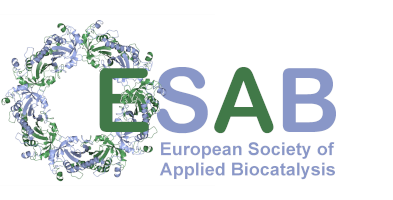Automated in vitro and in vivo metabolic pathway engineering
Abstract
This presentation will introduce Galaxy-SynBioCAD [1], a Galaxy toolshed for synthetic biology, metabolic engineering, and industrial biotechnology. The tools and workflows currently shared on the toolshed enables one to build libraries of strains producing desired chemical targets covering an end-to-end metabolic pathway design and engineering process from the selection of strains and targets, the generation of pathways producing the targets, the design of DNA parts to be assembled, to the generation of scriptsdriving liquid handlers for plasmid assembly and strain transformations. Pathways are designed using retrosynthesis methods [2], and several template-based and template-free alternatives to perform that task will be compared. Data standards to enforce compatibility and to chain up tools into workflows will also be presented. The link between pathway design and engineering will be illustrated with the building of a library of E. coli lycopene-producing strains in a study carried out at four different sites. The workflows were also benchmarked on literature and expert validated pathways. Overall, 83% success rate was found in retrieving the validated pathways among the top 10 pathways generated by the workflows. Ongoingdevelopments within the Galaxy-SynBioCAD toolshed, will also be presented, these include integration of DoE and active learning modules for proteins and small molecules bioproduction [3,4].
References
[1]Joan Hérisson, Thomas Duigou, Melchior du Lac,Kenza Bazi-Kabbaj, Mahnaz Sabeti Azad, Gizem Buldum, Olivier Telle, Yorgo El Moubayed, Pablo Carbonell, Neil Swainston, Valentin Zulkower, Manish Kushwaha, Geoff S. Baldwin,Jean-Loup Faulon,The automated Galaxy-SynBioCAD pipeline for synthetic biology design and engineering.Nat Commun. 13(1),5082(2022).https://doi.org/10.1038/s41467-022-32661-x
[2]Mathilde Koch,Thomas Duigou, Jean-Loup Faulon,Reinforcement Learning for Bioretrosynthesis.ACS Synth.Biol.9(1),15(2020).https://doi.org/10.1021/acssynbio.9b00447
[3]Olivier Borkowski, Mathilde Koch, Agnès Zettor, Amir Pandi, Angelo Cardoso Batista, Paul Soudier,Jean-Loup Faulon,Large scale active-learning-guided exploration for in vitro protein production optimization.Nat. Commun.11(1),1872(2020).https://doi.org/10.1038/s41467-020-15798-5.
[4]Amir Pandi, Christoph Diehl, Ali Yazdizadeh Kharrazi, Scott A. Scholz, Elizaveta Bobkova, Léon Faure, Maren Nattermann, David Adam, Nils Chapin, Yeganeh Foroughijabbari, Charles Moritz, Nicole Paczia, Niña Socorro Cortina, Jean-Loup Faulon,Tobias J. Erb,A versatile active learning workflow for optimization of genetic and metabolic networks. Nat Commun. 13(1),3876(2022).https://doi.org/10.1038/s41467-022-31245-z.
About the Speaker(s)
 Jean-Loup Faulonis a senior research director at the French National Institute for Agronomical Research and Environment (INRAE) and also an affiliated Professor at the University of Manchester. In the past, he has been the director of theInstitute of Systems & Synthetic Biology in France and a distinguished research scientist at US DOE laboratories. For most of his career, he has been leading interdisciplinary research in synthetic biology and computational biology. He is renowned forhis work on computer-aided design and retrosynthesis in biology. Originally developed in the context of metabolic engineering, the tools and protocols developed by his group are also used to engineer biosensors and biocomputing devices in whole-cell and cell-free systems. Website:https://www.jfaulon.com
Jean-Loup Faulonis a senior research director at the French National Institute for Agronomical Research and Environment (INRAE) and also an affiliated Professor at the University of Manchester. In the past, he has been the director of theInstitute of Systems & Synthetic Biology in France and a distinguished research scientist at US DOE laboratories. For most of his career, he has been leading interdisciplinary research in synthetic biology and computational biology. He is renowned forhis work on computer-aided design and retrosynthesis in biology. Originally developed in the context of metabolic engineering, the tools and protocols developed by his group are also used to engineer biosensors and biocomputing devices in whole-cell and cell-free systems. Website:https://www.jfaulon.com
